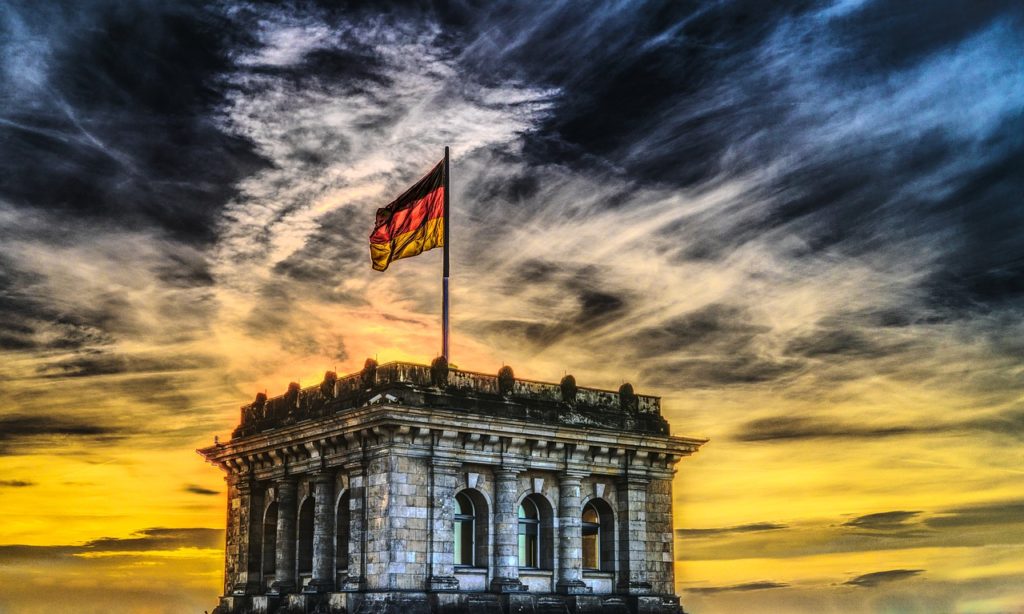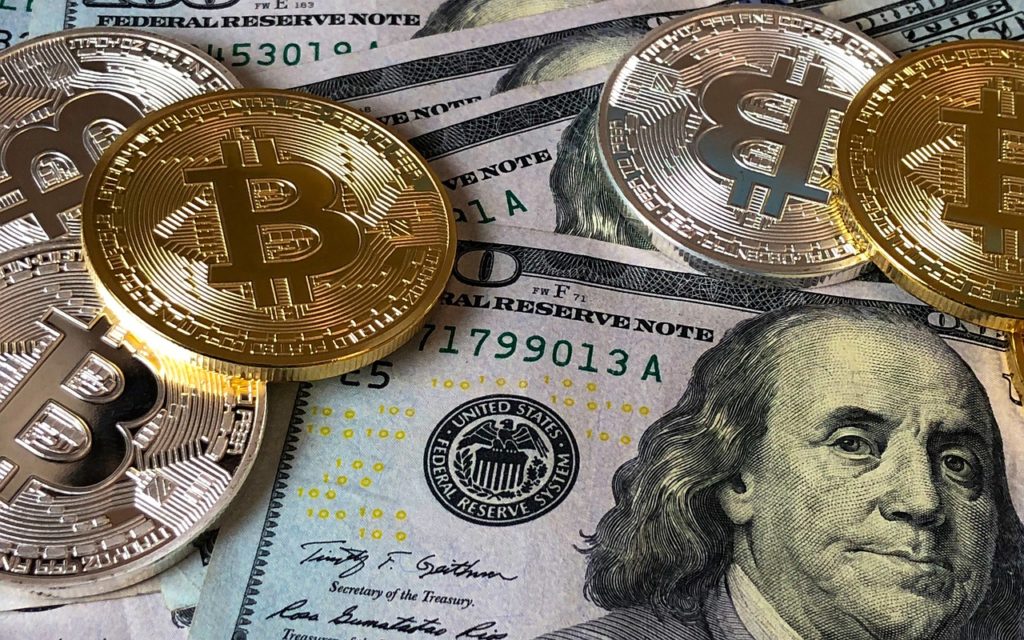To use cryptocurrencies, you only need a smart device and Internet. So, being in a specific country isn’t exactly a requirement nor a limitation, even if the laws aren’t so much friendly there (the VPNs exist for something, after all). However, there are some countries with a high number of crypto-users, because of this or another reason.
We already talked about the most crypto-friendly countries, but oh surprise: they’re not the territories with most crypto-users. Indeed, some of the latter aren’t crypto-friendly at all. In some others, you’ll find a wide variety of related services.

Before we can start with the list, our methodology is important. We checked the latest poll about how common is crypto by Statista, the Global Cryptocurrency Adoption Index (2020) by Chainalysis, and the Bitcoin Mining Map by the University of Cambridge. We also take into consideration data from CoinMap (crypto-venues), Coin ATM Radar (crypto-ATMs), BitNodes (BitcoinBitcoin is the first decentralized digital currency. It was created in 2009, by an anonymous founder or group of founders... More nodes), CryptoCompare (fiat usage in exchanges) and Coin.Dance (P2P volume).
This said, let’s go!
5. Russia
The Eurasian country isn’t exactly classified among the friendliest ones towards cryptocurrencies. It’s more the opposite. The crypto-users there have to face strict limitations, like not being able to pay for goods and services with cryptos. Besides, government officials aren’t allowed to own cryptocurrencies; and the punishments for tax avoidance are really expensive.

Who would say cryptos would thrive in such a hostile environment? Well, that is exactly what’s happening. Russia is not in Statista’s top 10 (that’s a poll with voluntary answers, though), but it totally is in the Chainalysis adoption report. The latter assessed four important factors: on-chain value received, on-chain retail value received, number of on-chain deposits, and P2P exchange trade volume. It turns out Russia is in second place, only after Ukraine.
Additionally, Russia is in third place by Bitcoin mining hashA hash is a mathematical function that turns a set of data into a short string of random numbers and... More rate, and in an eighth-place by Bitcoin nodes. It’s a nice (and cold) place for crypto-mining. The weekly traded volume for BTCAn abbreviation for Bitcoin. against the ruble (RUB) is around $27m in exchanges and $8.7m in P2P volume. Plus, according to a poll done by the firm IDF Eurasia, at least 10% of the Russians with bank accounts want to invest in cryptocurrencyA digital currency running on a blockchain and built with cryptography. Contrary to central-bank issued currency, cryptocurrency issuance rules are... More.
About the laws, beyond what we already mentioned, cryptocurrencies are allowed —except for payments. The people and companies doing crypto-transactions involving more than 600,000 RUB annually (around $8,100), will have to declare them for taxes (from 13% to 15%). Failing to do so, will imply fines between 10% and 40%.
4. Nigeria
Last month, the Central Bank of Nigeria took a drastic decision by banning cryptocurrency trading involving national banks. So, numerous native crypto-users saw a sudden closure of their bank accounts involved somehow with the cryptocurrency exchanging.

The authorities didn’t clarify the cause for this. However, the main reason to do it probably is due to female opposition protesters (the movement #EndSARS) using Bitcoin and other cryptos as international funding in 2020. On the other hand, Senator Sani Musa literally declared that “Bitcoin has made our currency [the Nigerian naira] almost useless and valueless”. Although, Bitcoin has nothing to do with the 24% devaluation of the naira last year and the still rampant inflation.
That’s maybe why, far to stop, Nigerians are very active crypto-users. The ban only made the BTC more expensive: it climbed over $86k at the time, and now is around $66k per unit in the national exchanges (including P2P). For Statista, Nigeria has the first worldwide place in crypto-adoption, and for Chainalysis is the eighth. The volume BTC/NGN was around $56m last week in exchanges and over $3m in P2P.
3. China
China has a love-hate story with cryptocurrencies. Years ago, when the ICOs and exchanges were allowed in the country (around 2015), 80% of Bitcoin volume was exchanged into and out of Chinese yuan (CNY). No wonder now this territory is still the undisputed leader in Bitcoin mining, with over 65% of the total hash rate.

Statista ranks it in seventh place for adoption, while Chainalysis ranks it in fourth place. It’s ninth by the number of BTC nodes. Now, according to CryptoCompare, the country has a weekly BTC volume of over $2.3m in exchanges and over $1.5m in P2P. However, as described by Chainalysis, “East Asia [and mostly China and Japan] is the world’s largest cryptocurrency market, accounting for 31% of all cryptocurrency transacted in the last 12 months”.
Their laws, on the other hand, are not quite in tune with the crypto-users. Since 2017, ICOs and cryptocurrency exchanges are banned in the territory. Cryptocurrency is legal, though. And it’s only taxable if is considered an investment, from 3% to 45% top annually. Besides, China is among the first countries to develop and release its own national Central Bank Digital Currency (CBDC).
2. Germany
Maybe you always heard about Malta, Estonia, or Japan as friendly crypto-countries full of adoption, but Germany is also a discreet member of this team. Indeed, it’s considered a tax haven for cryptocurrencies. There are taxes (from 0% to 45%) only for the short-term investments above 600€. But if an individual investor holds cryptos for over a year, then there are no taxes at all.

For Statista, Germany is in ninth place of adoption, even above Japan. Chainalysis didn’t exactly include the country in their top ten, but, according to this same firm, Germany it’s part of the second-largest cryptocurrency market in the world (Northern & Western Europe). This country is only behind the United Kingdom per value received on-chain between July 2019 and July 2020 (over $8b).
Only in CoinMap, we can find over 600 venues of all kinds accepting Bitcoin and cryptos as payment in Germany. That includes restaurants, lodging, grocery, nightlife, shopping, transport, and professional services in most cities. Beyond that, the Amazon-like marketplace Shopinbit is from this country as well; and we can find at least 54 crypto-ATMs throughout the territory.
Additionally, Germany is the third place worldwide by Bitcoin nodes, only because the second place are non-identified countries. The euro is the third fiat currency against Bitcoin volume in exchanges, with around $6.7b in weekly trades, and an extra $2.3m weekly in P2P exchanges. Finally, Germany is the eighth place by Bitcoin mining hash rate.
1. United States
Not everybody would consider the United States as the friendlier toward cryptos, but the truth is there’s an awful lot of crypto-users (individuals and companies) making life and money here. The U.S. is in eighth place for Statista, and in sixth place for Chainalysis.
North America is “the third-most active region by cryptocurrency volume moved on-chain” to this firm. Although, the USD is still the first fiat currency worldwide against Bitcoin volume in exchanges, with over $23.1b weekly tradings. On P2P exchanges, the weekly figure is over $28.6m.

After China, United States is the second leader in Bitcoin mining and the first one in Bitcoin nodes. CoinMap registers over 2,200 venues accepting cryptocurrencies in most cities, and in Coin ATM Radar we can find 14,126 crypto-ATM locations within the U.S.
More crypto-users in the States
Plus, according to Crunchbase, there are at least 953 crypto-companies based in this country. Among these, we include names like Ripple, Gemini, Stellar, BitGo, Bitwise, Blockstream, Circle, ConsenSys, Lightning Labs, Compound, Electric Coin Company (Zcash), Grayscale Investments, Ledger, MicroStrategy, and Chainalysis itself.
The cryptocurrency regulation here isn’t as flexible as in other territories, but we can’t say is hostile either. Their Internal Revenue Service (IRS) tax most cryptos as property, and the Securities and Exchange Commission (SEC) is in charge of tokens considered as securities. However, that’s still a polemic, like the Ripple case has proved. The crypto-businesses need an official license to operate, and the authorities are still working on regulations for stablecoins.
The taxes? They only apply if the investor decides to get rid of the crypto and sell it for fiat with an income. If they do it in the short term (less than a year), then the top rate would be around 37%. If they do it in the long term (more than a year), the top rate would be around 20%.
Wanna trade Bitcoin and other tokens? You can do it safely on Alfacash! And not forget we’re talking about this and a lot of other things on our social media.
Twitter * Telegram * Facebook * Instagram * Youtube * Vkontakte








